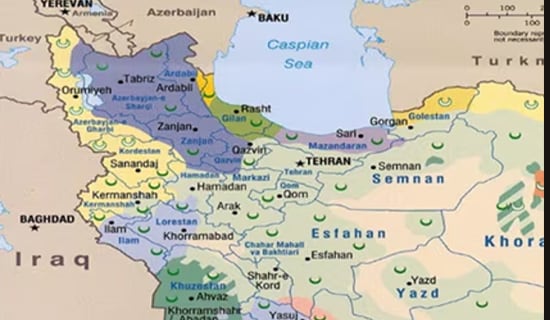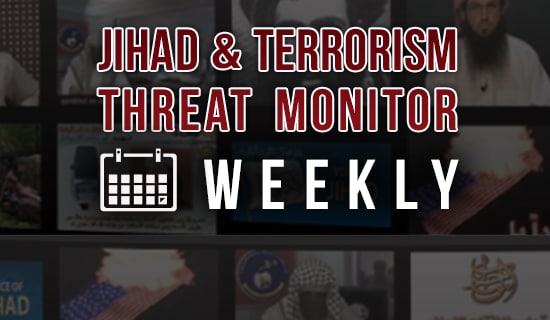In a November 20 article in the London-based Saudi daily Al-Hayat, the daily's editor, the Lebanese Ghassan Charbel, wrote that the war in Syria poses a horrific threat to the entire Middle East, since it has sparked a region-wide sectarian war in which Sunnis and Shi'ites travel to Syria from other countries in order to fight each other there. This, he says, has virtually eliminated the boundaries between countries and shattered their internal cohesion, creating a conflagration of unprecedented severity that cannot be controlled or contained.
Addressing the situation in Lebanon, he lambastes both the Sunnis and Shi'ites there for rushing to import the Syrian war into their own country, in complete disregard for the threat this poses to their homeland and the future of their children. Lebanon, he says, is beyond the stage of "Iraqization"; it is witnessing sectarian killings that place it on the verge of collapse and jeopardize its very survival.
The following is an English translation of the article published by Al-Hayat.[1]

Ghassan Charbel (image: al-Arabiya.net)
"How Can [Sunnis And Shi'ites] Coexist In Lebanon If They Are Fighting In Syria?"
"How dangerous it is for a Lebanese from North Lebanon to cross into Syria to fight with the opposition [there] because he is Sunni, and how dangerous it is for a Lebanese from the Bekaa to cross into Syria to fight alongside the regime [there] because he is Shi'ite. How dangerous it is for a Lebanese Shi'ite to kill a Sunni Syrian on Syrian territory, and for a Lebanese Sunni to kill an Alawite Syrian on Syrian territory. How dangerous it is for a Shi'ite Iraqi to cross the border to fight a Sunni Syrian on Syrian territory, and how dangerous it is for a Sunni Iraqi to cross the border to fight an Alawite Syrian on Syrian territory.
"We are in the midst of a regional sectarian war, where feelings flow like [a] flood. The problem lies not only in those [who will] 'return from Syria' tomorrow or the day after; the problem is that the Syrian fire is burning [away the] national cohesion [of] countries near and far.
"Those who [have] crossed into Syria [have] destroyed the immunity of the border in both directions. They [have] torn up the maps. It [has] become clear that the Sunni wants to connect to the Sunnis in the neighboring country regardless of the border, and that the Shi'ite wants to connect to the Alawite regardless of the border, and that the obstacles that prevent this contact are to be treated as targets for deletion and cancellation. We have never seen such a thing before. How dangerous it is for a Shi'ite Lebanese to kill a Sunni Lebanese in Syria, and vice versa. How can they coexist in Lebanon if they are fighting in Syria?"
"The Killing Fields Extend From Baghdad To Beirut Through Damascus"
"The Lebanese have the right to feel very scared; nay, it is their duty to feel deep consternation. What is happening [now] is more serious and horrific than the wars of the seventies and eighties. [The] previous wars were of a different nature. Their fires and [scope] could be [limited] somewhat, and a regional power could have been called upon to enforce the peace and [patronage], even if at a price. The present wars are different, and have no limits or controls. They are taking place in a different region, and thus we see the killing fields extend[ing] from Baghdad to Beirut through Damascus. Iraq is ill, Syria is torn, and Lebanon is a likely murder victim.
"We are facing unprecedented scenes. It is no simple thing that the Iranian embassy in Beirut is targeted, [in response to the] Iranian involvement in Syria. It is no simple thing for the al-Qaeda-linked Abdullah Azzam Brigades [to] claim responsibility [and] call on Hezbollah to pull out its troops from Syria. It is no simple thing for the statement to declare that the attack was 'a double martyrdom operation by two heroes of the Sunni [sect] in Lebanon.'
"The new attack came at a time when Lebanon is still [suffering] under the weight of the bombings of August. The first bombing shed blood in the (Shi'ite) southern suburb of Beirut. The second shed blood in (Sunni) Tripoli by targeting mosques during prayers. There is nothing to justify [the use of] euphemism and avoid[ance] [of] labels anymore. Lebanon is officially in the stage of sectarian killing.
"If the statement of the Abdullah Azzam Brigades [said the truth] about the identity of the perpetrators, the danger becomes twofold. We are no longer facing the danger of 'Iraqization.' 'Iraqization' is already part of the scene. The bombing in the southern suburb was definitely of this kind, and so were the bombings in Tripoli.
"Successive blows [have] hit a country that has lost its immunity, a country that is divided and unable to form a new government eight months after the previous government resigned. Lebanon is a country living under a paralyzed parliament, and a country whose military and security institutions are trying to circumvent the fire without [taking the] risk of tackling it, for reasons that have to do with their internal unity."
The Lebanese "Rushed To Import" The Syrian War Into Their Country
"The Lebanese did not try to keep the Syrian fire away from their country. They went to it, brought it [in] and rushed to import it. They became divided and they threw themselves into the fire, some individually and others in an organized public manner. They did not pay heed to the fact that they were playing with their blood and the blood of their children, and that this game was more than Lebanon can bear. They did not realize that Lebanon is threatened with collapse, not only because the collapse of the borders in the region is dangerous, but because the collapse of coexistence invalidates [Lebanon's] raison d’être.
"I will not make naïve proposals like withdrawing from Syria and [making] mutual concessions to form an inclusive cabinet. I feel [that] each camp in Lebanon is hostage to its [own] suicidal choices. The winds of 'Iraqization' struck Syria, and now they are blowing [in] Lebanon. Lebanon is on the path [to] collapse. Shi'ite-Sunni relations have never deteriorated as much as they have now. Meanwhile, the Christians in Lebanon are too small for the current crisis and its risks, and too small to undertake a historical role that renews the meaning of Lebanon and the rationale for its survival."
Endnotes:
[1] Al-Hayat (London), November 20, 2013. The text has been lightly edited for clarity based on the Arabic original.








